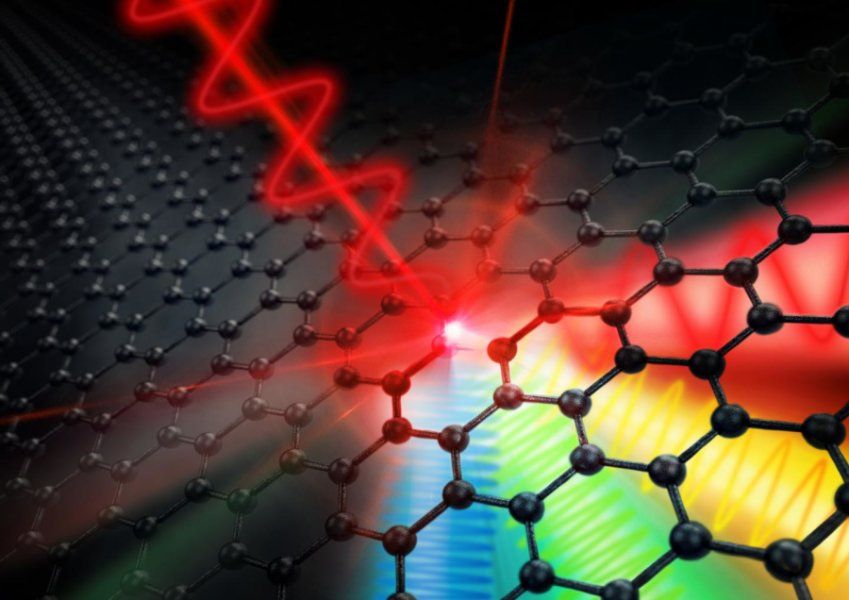Sep 12, 2018
Graphene enables clock rates in the terahertz range
Posted by Genevieve Klien in categories: materials, particle physics
Graphene — an ultrathin material consisting of a single layer of interlinked carbon atoms — is considered a promising candidate for the nanoelectronics of the future. In theory, it should allow clock rates up to a thousand times faster than today’s silicon-based electronics. Scientists from the Helmholtz Zentrum Dresden-Rossendorf (HZDR) and the University of Duisburg-Essen (UDE), in cooperation with the Max Planck Institute for Polymer Research (MPI-P), have now shown for the first time that graphene can actually convert electronic signals with frequencies in the gigahertz range — which correspond to today’s clock rates — extremely efficiently into signals with several times higher frequency. The researchers present their results in the scientific journal Nature.


















